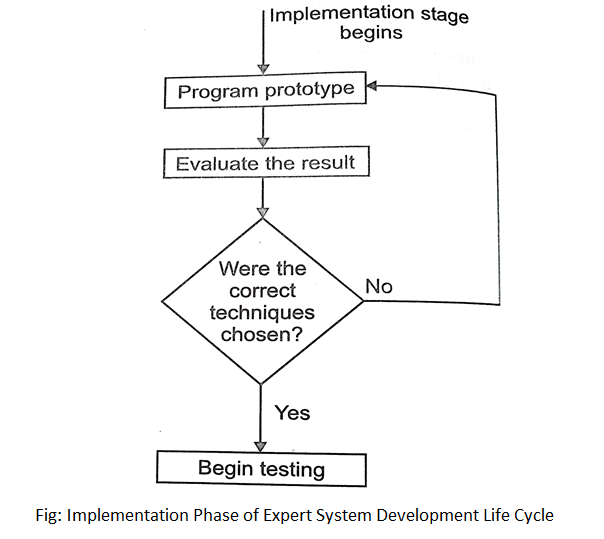Phases of Expert System Development Life Cycle
Expert System Development Life Cycle
A Knowledge Engineer or an AI Engineer is skilled in the art of developing Expert Systems (ES). A domain expert is an individual who has significant expertise in the domain of the expert system. It is not crucial that the domain expert understand AI or expert systems that is one of the functions of the knowledge engineer. The knowledge engineer and the domain expert usually work close to each other throughout the Expert System Development Life Cycle process.
Steps to Develop an Expert System
An expert system (ES) was developed and refined over several years. Expert System Life Cycle has five stages –
Step1: Identification: Determining the characteristics of the problem.


Step4: Implementation: Formulating rules which embody the knowledge.

The chances of a prototype expert system executing flawlessly are very less initially. A knowledge engineer doesn’t expect the testing process to verify that the system has been constructed entirely correctly. Testing provides an opportunity to identify the weaknesses in the structure and the implementation of the system. Testing includes are:
i. The system implements correctly or incorrectly.
ii. Rules implement correctly or not.
iii. The System uses for testing for both simple and complex problems by domain experts to uncover more defects.
iv. An Expert System is finally tested to be successful only when it is operated at the level of a human expert.
v. The testing process is NOT complete until it indicates that the solutions suggested by the expert system are consistently valid.
vi. Expert systems are typically interactive, they work in question-and-answer form. This interaction between users and the Experts system continues until the system can conclude.